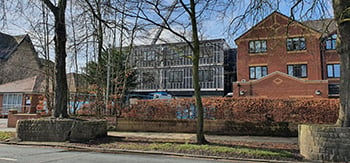Is an endoscopy painful?
The procedure can be mildly uncomfortable, but not usually painful. Most people experience mild discomfort, the procedure is usually done while you're awake.
What is the recovery process?
You can expect to go home a couple of hours after your procedure. If you have had a sedative, you may feel drowsy for a while afterwards after endoscopy therefore will need someone to drive you home and stay with you overnight until its effects have worn off.
What are the risks of an endoscopy?
The overall risks of serious complications of an endoscopy is very low, the procedure is usually very safe.
There are many different types of endoscopy treatments, dependent on the purpose of the procedure
Upper GI Endoscopy
An upper gastrointestinal (GI) endoscopy is a procedure to look at the inside of the oesophagus (gullet), stomach and duodenum using a flexible telescope allowing your doctor to diagnose and sometimes treat conditions that affect your oesophagus, stomach and beginning of your small intestine.
Please click here for more information.
Colonoscopy
A colonoscopy is a procedure that uses a flexible telescope to look at the inside of the large bowel (colon) for changes or abnormalities such as colon polyps and bowel cancer.
Please click here for more information.
Flexible Sigmoidoscopy
A flexible sigmoidoscopy is a procedure to look at the inside of the left, lower part of the colon (large bowel) using a flexible telescope inserted into your back passage. It is used to confirm whether there are any abnormalities present and also as a general screening tool for colon cancer.
Please click here for more information.
Cystoscopy Rigid Female
A rigid cystoscopy (female) is a procedure to check for and diagnose any problems in your bladder using a rigid telescope, called a cystoscope.
Please click here for more information
Cystoscopy Rigid Male
Rigid cystoscopy (male) is an examination of the inside of a man’s bladder using a rigid telescopic tube called a cystoscope. It investigates and treat problems in a man’s bladder or urethra.
Please click here for more information
Cystoscopy Flexible Female
Flexible cystoscopy (female) is a procedure that uses a flexible telescope to look for and treat problems in your bladder.
Please click here for more information
Cystoscopy Flexible Male
Flexible cystoscopy (male) is a procedure that uses a flexible telescope to check for problems in a man’s bladder.
Please click here for more information


